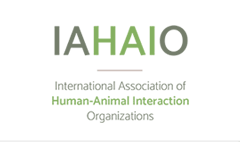Abstract
Free-roaming domestic cats (Felis catus) create controversy, due to their tendency to invade neighbors’ gardens, hunt wildlife, and create disturbances. Municipal governments are often under pressure to address concerns regarding free-roaming cats. As approximately 28% of the 8.8 million cats owned in Canada free-roam (are allowed outside unsupervised and unconstrained), understanding owner rationales for letting the cat out is important for officials tasked with addressing public concerns. In 2019, we studied attitudes toward cats within a north-central British Columbia, Canada, city. The rationales cat owners use to justify free-roaming, as well as their perceptions about the risks and benefits of this decision are discussed. While a majority of non–cat owners (and former owners) were concerned about free-roaming cats, current cat owners were not. While our research suggests that many cat owners are conflicted about letting their cats out, those so doing are committed despite recognizing the risks to their cat, wildlife, and relationships with their neighbors. This suggests that education is likely ineffective. Our research suggests that owners are unlikely to be motivated by poorly enforced bylaws or conservation concerns. Instead, outreach that focuses upon the risk to free-roaming cats might be more persuasive. In conjunction with the survey, we also conducted a limited field trial of the BirdsbeSafe cat collars to determine their effectiveness in limiting predation on birds. While a small sample was obtained, our results demonstrate that the collars do limit bird predation by owned cats.
Erratum
Corrections to page 5 made at author's request Feb 14, 2025: - "Among the 518 cat owners who allow their cats some outdoor access..." changed to "Among the 538 cat owners..." - "Of the 385 participants who allowed their cats outside..." changed to "Of the 538 participants..."
Recommended Citation
Booth, Annie and Otter, Ken
(2024)
"“Here, Kitty, Kitty.” Community Perceptions of Free-Roaming Cats: A Northern Canadian Case Study,"
People and Animals: The International Journal of Research and Practice: Vol. 7
:
Iss.
1,
Article 2.
Available at:
https://docs.lib.purdue.edu/paij/vol7/iss1/2


